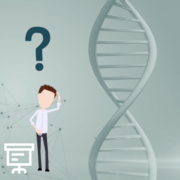Overview: Head & Neck Cancer
Head and Neck Surgeon, Dr. Namou Kim provides and important overview of what to expect with Head and Neck Cancer.
Head and Neck Surgeon, Dr. Namou Kim provides and important overview of what to expect with Head and Neck Cancer.
Dr. Sangmin Lee shares the benefits of meditation and yoga and explains how mindfulness can affect your overall health.
Dr. Sangmin Lee is a hematologist-oncologist specializing in blood disorders and blood cancers at Weill Cornell Medicine and New York Presbyterian Hospital.
See More From The Fact or Fiction? AML Series

|

|

|
Patricia:
How about this one? A positive attitude and mindfulness can improve treatment response.
Dr. Lee:
Absolutely. Absolutely. Treatment for leukemia can be tough. Some of the treatment involves intense chemotherapy. Treatment for leukemia can involve stem cell transplant. And a key important aspect of treatment is being healthy and being optimistic about treatment, because a lot of treatment can have side effects, and side effects can be not as apparent if you are physically more active, and in a good state. So, I think that having a positive outlook is very, very important.
Patricia:
Quality of life issues are difficult for some people. How do you talk with your patients about their quality of life, and staying healthy during their treatment?
Dr. Lee:
So, quality of life is absolutely important. I mean, the whole point of treating leukemia and any other treatment is not only to address the leukemia, but also have good quality of life. So, when discussing treatment options, you always have to balance the quality of life and side effects versus potential benefits. So, that’s always on our mind when discussing potential treatment options, and how it impacts the quality of life. Throughout the treatment process, we always tell our patients that being active, and having a good quality of life, and having good nutrition, is absolutely important, because that’s a key aspect of treatment for leukemia.
Patricia:
What about meditation and yoga for coping with anxiety around cancer diagnosis and treatment? Mindfulness.
Dr. Lee:
Absolutely, absolutely. Those can help. Especially having leukemia, it’s very life-changing, so a typical way that patients are diagnosed with acute leukemia is patients live a normal life, and then they develop, all of a sudden, abnormalities. And they’re diagnosed with acute leukemia, and it can be very sudden. And it can be very difficult. So, that can understandably make patients have anxiety, and other issues.
And I believe that meditation, and yoga, and other exercises can absolutely help cope with this.
Patricia:
And there’s tons of resources for meditation and yoga out there, that are reliable.
Dr. Lee:
Yes. Yeah.
Patricia:
Yeah. Should patients regard yoga and meditation as part of their treatment, as part of their self-care, during this process?
Dr. Lee:
Absolutely, absolutely, if the patients are into meditation and yoga. Meditation is very harmless, and it can absolutely help in terms of guiding their mind through their treatment journey. Yoga is good if you’re physically able to do it. So, one caution is that, if you’re not someone who does yoga normally, then you should start off slow, and not push yourself as aggressively.
Is it just a trend or could cannabis oil truly have a role in cancer care and treatment? Dr. Sangmin Lee share his perspective.
Dr. Sangmin Lee is a hematologist-oncologist specializing in blood disorders and blood cancers at Weill Cornell Medicine and New York Presbyterian Hospital.
See More From The Fact or Fiction? AML Series

|

Assessing Credible AML Resources and Identifying Research Scams |

|
Patricia:
The use of cannabis oil is becoming prevalent. Does this have a role in cancer care and treatment?
Dr. Lee:
Absolutely. So, we use it for a lot of side effect management. So, cannabis can be helpful, in terms of appetite and nausea, for example. So, we often use it in conjunction to manage some of the side effects that patients can have throughout their treatment.
You should consult with your medical team, and of course, I should say that laws differ state by state, so it doesn’t apply to every state. But when it’s available, it can be a valuable addition.
Patricia:
Sure. Discuss that with your physician.
Does sugar feed cancer? Dr. Sangmin Lee addresses the rumored connection between sugar and cancer.
Dr. Sangmin Lee is a hematologist-oncologist specializing in blood disorders and blood cancers at Weill Cornell Medicine and New York Presbyterian Hospital.
See More From The Fact or Fiction? AML Series

|

Assessing Credible AML Resources and Identifying Research Scams |

|
Patricia:
Okay, a little more fact or fiction, here. This is what we’ve heard from patients who have AML about cures, okay? Sugar feeds cancer, and severely restricting my diet will treat my AML.
Dr. Lee:
That’s not proven so far. There are some laboratory studies, especially with keto diets, showing some promise, maybe. But then it hasn’t been proven in humans, yet. The most important thing about AML treatment is actually nutrition. As patients go through AML treatment, it’s very important to stay healthy, and part of that is nutrition.
So, starvation, in general, is not recommended, because nutrition is so important, in terms of being able to undergo the treatment, as well as treatment visits, and everything. So, we recommend that nutrition is very important.
Dr. Sangmin Lee discusses the monitoring of clinical trial participants and the measures taken for patient safety.
Dr. Sangmin Lee is a hematologist-oncologist specializing in blood disorders and blood cancers at Weill Cornell Medicine and New York Presbyterian Hospital.
See More From The Fact or Fiction? AML Series

|

|

|
Patricia:
How about this next one? I am monitored more closely in a clinical trial.
Dr. Lee:
In some cases, it’s true. Clinical trials do have certain monitoring visits, in terms of doctor’s visits, laboratory tests, and physical exams.
The purpose of that is to make sure that it is safe. So, the purpose of monitoring closely, in a lot of cases, is for the patient’s safety. We are testing drugs in a lot of clinical trials, for which the complete safety profile, as well as efficacy profile, is not known. So, the purpose of closer monitoring is to make sure whatever we’re doing is safe, and if there are any unexpected side effects, then it allows us to address the side effects, as well. So, it’s mainly for patients’ safety.
Dr. Sangmin Lee reviews the financial impact associated with clinical trials, including a discussion of what expenses are covered for participants.
Dr. Sangmin Lee is a hematologist-oncologist specializing in blood disorders and blood cancers at Weill Cornell Medicine and New York Presbyterian Hospital.
See More From The Fact or Fiction? AML Series

|

|

|
Patricia:
All right, how about this one: I may have unexpected costs if I join a clinical trial.
Dr. Lee:
So, typically, that’s actually, usually not true, because how it works is that the clinical trial drugs, and that there may be extra procedures or visits associated with clinical trials.
And what usually happens is that the sponsor of the clinical trial provides the cost of the drug, intervention, and anything extra that are required for the clinical trial. So, in the end, the cost of participating in a clinical trial should not be any more than receiving standard care treatment.
In some rare cases, there may be stipends associated with the clinical trial, especially with travel. So, if you participate in a clinical trial, and you live far away, then you should ask to see if there is any stipends available, especially for travel.